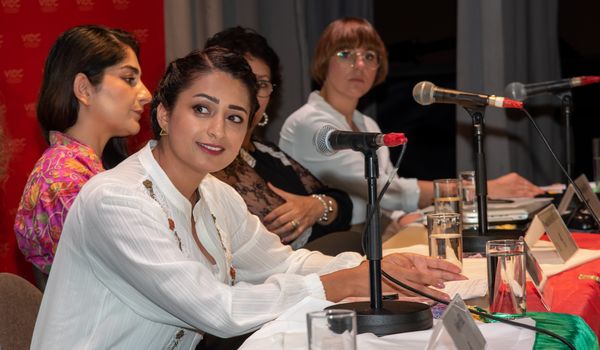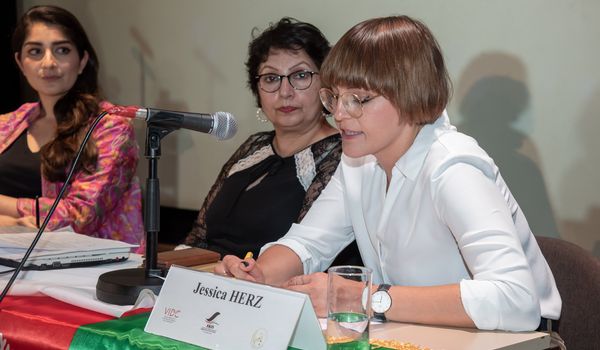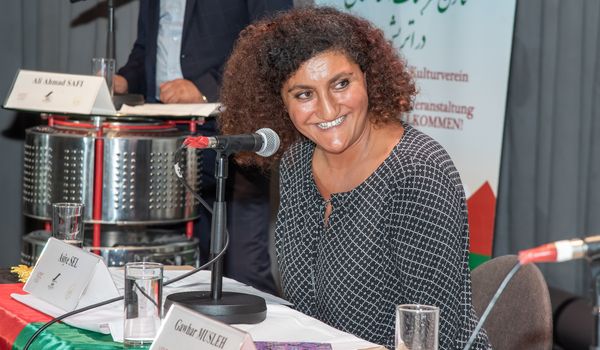The panel discussion has focussed on the 20th anniversary of UN Resolution 1325, which calls for the equal participation of women around the world in peace negotiations and reconstruction.
Amidst threats of Covid-19, nearly 100 Afghan women, part of the diaspora living in Europe gathered in Vienna on the 22nd of August to celebrate the 20th anniversary of ‘Banu’ (woman): the first Afghan women magazine in Europe and to discuss the inclusion of women in the upcoming intra-Afghan peace negotiations. Publishing in two of Afghanistan’s official languages, Pashto and Dari, Banu was founded in the year 2000 in Austria by the head of the Afghanistan Cultural Association, Ghousuddin Mir. Its main objective is to support the diaspora of Afghan women with integrating into their new countries, keeping them connected with their home country and other Afghan women throughout Europe and beyond. More than 60 editors and journalists from the Afghan diasporic communities in Europe contribute to this magazine, which is available online and also in print.
First meeting since the outbreak of the pandemic
The diaspora of Afghan women in Austria, Belgium, Czech Republic, Germany, the Netherlands, Norway and Sweden came together for the first time in Vienna since the pandemic started, to network and advocate for the rights and meaningful participation of women during the Afghan peace talks. On the 29th of February, the United States Special Representative for Afghanistan Reconciliation (SRAR), Zalmay Khalilzad and the Taliban’s chief negotiator, Mullah Ghani Baradar signed a peace agreement in Doha to end the United States’ longest war. The 18-month long negotiations between the Taliban and the US representative were handled behind closed doors, without any women present in the room.
“I do not believe in peace behind closed doors and in the absence of women. Never is such a peace possible” said the Editor-in-chief of Banu magazine, Nahid Olumi, who was one of the five speakers on the panel: “No peace without women,” at Banu’s 20th anniversary celebration.
The prominent Afghan journalist at Deutsche Welle (DW) - Waslat Hasrat-Nazimi, International Organization for Migration (IOM) representative for Country Office Austria - Jessica Herz, Asiye Sel from the Chamber of Labor of Vienna, and the head of women section of Afghanistan Cultural Association, Gahwar Musleh also participated as keynote speakers. Waslat Hasrat-Nazimi shared her professional and personal experience during the panel at the anniversary celebration. As the only female Afghan reporter who participated in the signing of the peace agreement in Doha and who met the Taliban for the first time, she had mixed feelings of fear and hope for the future of women in her motherland.
“Today I stood face to face with the Taliban’s leaders. It was a good experience as a journalist. As an Afghan woman it felt surreal. I kept thinking: Are those the men that executed women in public and chained them to their homes,” Hasrat-Nazimi tweeted after meeting the Taliban when the peace agreement was signed.
Hasrat-Nazimi asked the Taliban peace negotiators in Doha about their policies towards Afghan women if they were to return to power. She also asked them which country they would look to as an example of women’s rights: Saudi Arabia, which has strict rules for women or Indonesia, the biggest Muslim country where women enjoy relatively more freedom. “What school of thought will the Taliban follow on women’s rights?”
“They only replied with silence. I never got an answer to that,” Hasrat-Nazimi said during the panel discussion. She stated that the Taliban had always said that they would give women their rights according to Islam, but they never clarified what that really means.
Hasrat-Nazimi not only criticized the Taliban delegation for the absence of women on their side, but also criticized the Afghan government for choosing only five high-profile women who have benefited from the US invasion politically and economically and who lack any connections with the younger female and rural population.
‘Taliban have not changed’
Another speaker on the panel was Gawhar Musleh who met the Taliban on the streets of Kabul in 1996, when she was six years old and in the first year of her primary school. She was barred from attending school and could not comprehend why the Taliban were against girls’ education. She instead attended underground schools run and taught by other women’s rights activists. After the fall of the Taliban, she completed her education and graduated from Kabul Medical University in 2015.
For Musleh and her family, the Taliban have not changed their views on women and girls’ rights to education. She believes they will never change. “My worst memory from the Taliban is the fact that I was not able to go to school. I will never forget that,” said Musleh.
‘A fight for the rights and dignity of women’
Taliban ruled Afghanistan between 1996 and 2001. During this period, the Afghan women were completely invisible from social and public life, banned from going to school and work. In 2001, the US declared the ‘war on terror’ – to oust the Taliban from power for harboring Osama bin Laden, the alleged mastermind of 9/11 who was found and killed in Abbottabad, north of the Pakistani capital, Islamabad on the 2nd May 2011. The US war also aimed to rescue Afghan women from the atrocities and oppression of the Taliban, which was then termed as ‘a fight for the rights and dignity of women’. Since the US invasion, the Afghan women have made tremendous progress and have been more empowered than ever before. The war, however, continues to take the lives of Afghan civilians on both sides. The United Nations Assistance Mission in Afghanistan (UNAMA) documented 3,458 civilian casualties (1,282 killed and 2,176 injured) in the first half of 2020. The recent US-Taliban peace agreement aims to pave the way for the withdrawal of all foreign forces from Afghanistan, the launch of intra-Afghan negotiations, a country-wide ceasefire and the assurance that Afghanistan’s soil will not be used against the US and its allies. Six months after the agreement, none of these aims were achieved.
On the 1st of June, the UN Security Council’s Analytical Support and Sanctions Monitoring Team released its report that indicated undeniable links between the Taliban and international terrorist groups. Several hundreds of Al-Qaeda operatives, three Pakistan-based terrorist organizations such as Tehrike-e-Taliban Pakistan (TTP), Jaish-e-Mohammad (JiM) and Lashkar-e-Tayyiba (LeT) whose fighters are estimated to be between 6,000 to 6,500 operate in Afghanistan. All these groups have been designated as international terrorist organizations by the UN Security Council.

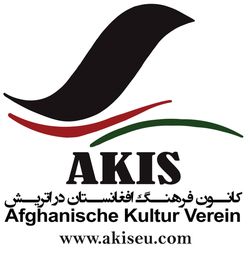





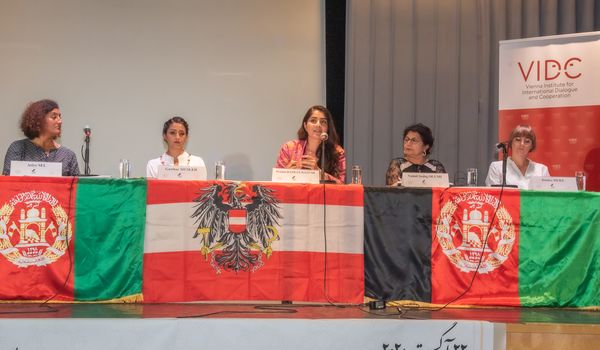
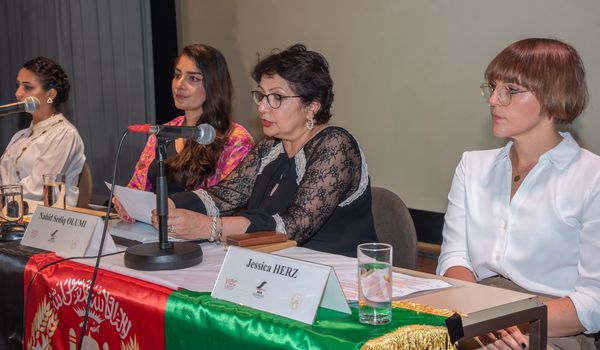
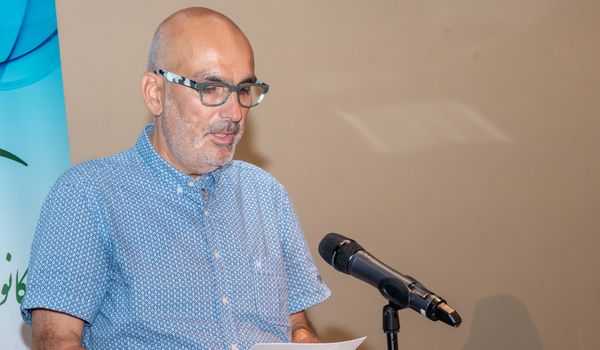
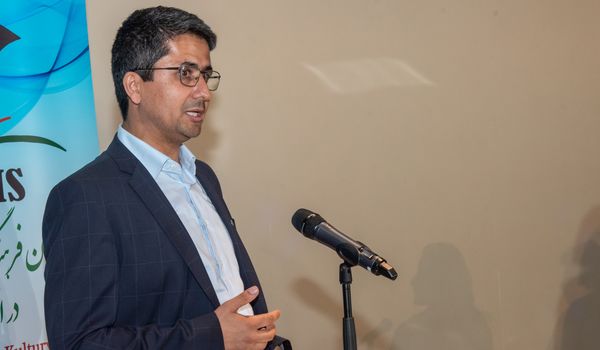
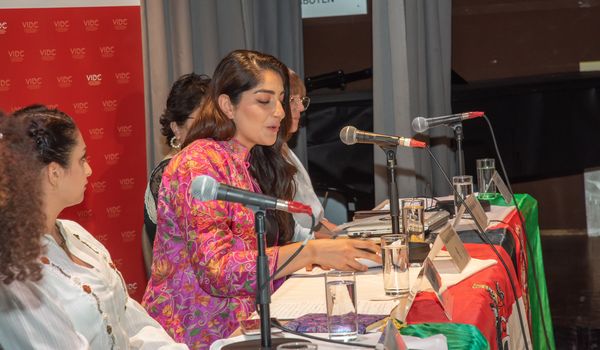
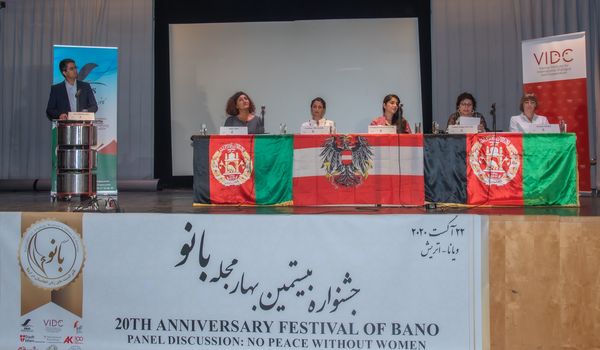
![[Translate to English:] [Translate to English:]](https://www.vidc.org/fileadmin/michael/akis/diskussion_600x350.jpg)
